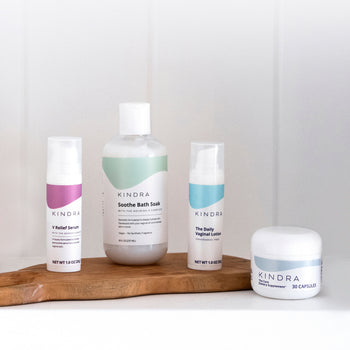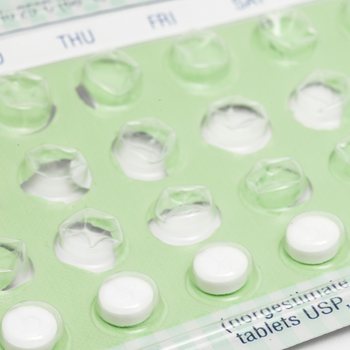By Dr. Suzanne Gilberg-Lenz
As we in Southern California head into week 7 ( is it 7? I'm losing count..) of Shelter in Place, I alternate between feeling lost at sea and strangely calm, serene, and grounded. I’ve never been more grateful for my work in Menopause, education, and empowering women on our evolving journeys. Its probably never been more obvious that it is truly is a day by day journey! This attitude helps navigate not only the current crisis but also your experience of the physiologic gift of menopause.
How are women in perimenopause and menopause faring? What are the pandemic’s unique impacts on us? What solutions are available to us? One of the first questions I got about this was from a patient who had panicked she had COVID-19 because she was experiencing a recent increase in night time awakening and feeling hot. After consulting with her primary care physician and closely monitoring her symptoms, she reached out to me as it became clear that she was in perimenopause and suffering from two of the most common symptoms: night sweats and sleep disruption. Six thousand women a day (and two million per year!) reach menopause or the complete cessation of menstruation for 12 consecutive months. With up to 80% of women experiencing hot flashes and nearly 50% complaining of sleep issues, that’s a lot of sweaty, sleep-deprived ladies! But don’t despair, there is help out there to not only get you through but even thriving!
How is Coronavirus affecting us? Like my patient, early signs or symptoms can be confusing. A temperature associated with a serious viral syndrome would generally be more sustained, measurable with a thermometer, and accompanied by other flu-like symptoms. These symptoms may include severe headaches or body aches, fatigue, possibly gastrointestinal or upper respiratory symptoms, and malaise. While it is true that joint aches and pains affect 50-60% of perimenopausal women, and fatigue and brain fog are common, they can be distinguished by checking with your physician. As we begin to understand COVID-19, we are also learning to appreciate sex differences in and possibly hormonal impact on disease expression and survival. Scientists are turning to hormone therapies as a potential treatment! it may turn out that being a woman IS an advantage.
If you are in a group that is particularly vulnerable to COVID-19 because of medical issues like diabetes, heart disease, respiratory issues, autoimmune or cancer, practice all of the most up to date guidelines for prevention. At this time, data is emerging constantly but conclusions on the impact of age or menopausal status will take much longer to interpret. Do not hesitate to reach out to your doctor. Not only do I consider your menopausal symptoms or issues essential to deal with, but many of us are also now offering telehealth appointments! Call your docs’ office to find out if she can provide a video conference consultation or sign up for online platforms that cater to your midlife needs. Maven, Genneve, or CurieMD are all staffed by licensed OBGYNs.
And just like before (and after!) this pandemic, many of the symptoms I’ve detailed can be safely and effectively managed with over the counter non-hormonal supplements. Kindra has carefully researched and developed a line of natural products with the most up to date scientific data and a focus on cruelty-free effectiveness. Your most bothersome symptoms including hot flashes, fatigue, sleep disruption, weight management, and vaginal dryness can be diminished by using Kindra products.
Mood symptoms, like anxiety and depression, or a prevailing feeling of just not being “you” affect many middle-aged women. Did you know there is a 2.5 times increase in the diagnosis of mood disorders at this point in life? This is a complicated topic and represents the convergence of hormonal, neurologic, societal, and personal changes. Add in a bit of quarantine and the seeming collapse of society… do we have the perfect recipe for disaster? We know that practicing simple mindfulness, breathwork and meditation, exercise, proper nutrition and exercise ALL alleviate anxiety, depression, fear, and grief. Whether or not these symptoms are due to the current crisis or merely amplifying underlying peri-menopausal issues- practicing even a daily ritual of gratitude by making a shortlist of ANYTHING you are thankful for can move you forward and bring a more positive outlook.
Social distancing and social isolation has been so difficult for us. Humans are social by nature and it turns out, scientific evidence supports the idea that community is healing! As we all turn to the internet for online support, don’t forget that the conversation on normalizing menopause Kindra has already started with their Facebook group. You will find a unique combination of information, guidance, expert, and community voices. Reach out, check it out, and remember you are not alone.
NOTICE: KINDRA DOES NOT PROVIDE MEDICAL OR HEALTH CARE ADVICE. OUR EMPLOYEES AND OTHER REPRESENTATIVES ARE NOT PHYSICIANS OR HEALTH CARE CLINICIANS. YOU SHOULD CONSULT YOUR PERSONAL PHYSICIAN FOR ANY MEDICAL AND/OR OTHER HEALTH CARE ADVICE BEFORE ACTING ON ANY INFORMATION PROVIDED BY KINDRA OR ANY OTHER SOURCE
Leave a Reply
Tags: About Menopause Anxious Connection Dry Skin Fatigue Foggy & Unfocused Hair Loss Hot flashes Joint Pain Managing my Hormones Mental Well-Being mind Moody & Irritable Night Sweats Physical Well-Being Sad Stressed Trouble Sleeping Weight Gain












